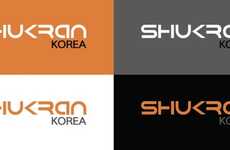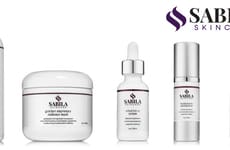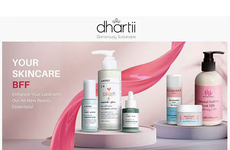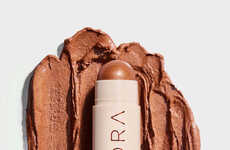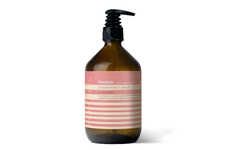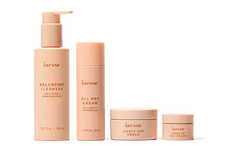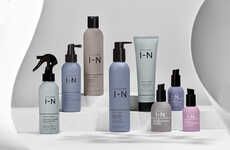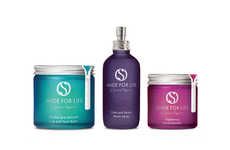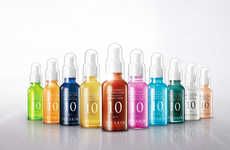
This Beauty Brand Makes Cosmetics from All Natural and Halal Ingredients
Katherine Pendrill — November 18, 2015 — Fashion
References: wardahbeauty & campaignlive
'Wardah' is an Indonesian beauty brand that makes cosmetics from all natural and halal ingredients. For many years, mainstream beauty brands have misunderstood the needs of Muslim consumers. Now there are a number of niche brands emerging from countries such as Malaysia and Indonesia that are trying to meet the demands for halal cosmetics.
'Wardah' is an Indonesian company making halal beauty products that are "designed specifically for Asian Muslim women’s skin." Unlike mainstream beauty brands, Wardah cosmetics are made from halal ingredients that are safe for sensitive skin. Not only are the products natural and halal-friendly, but the brand also reflects the lifestyle of its customers. This means that Wardah helps Indonesian women feel beautiful and fashionable, while still respecting Muslim values.
Wardah's success demonstrates that Muslim consumers are looking for products that can strike a balance between beauty and faith.
'Wardah' is an Indonesian company making halal beauty products that are "designed specifically for Asian Muslim women’s skin." Unlike mainstream beauty brands, Wardah cosmetics are made from halal ingredients that are safe for sensitive skin. Not only are the products natural and halal-friendly, but the brand also reflects the lifestyle of its customers. This means that Wardah helps Indonesian women feel beautiful and fashionable, while still respecting Muslim values.
Wardah's success demonstrates that Muslim consumers are looking for products that can strike a balance between beauty and faith.
Trend Themes
1. Halal Beauty Products - The emergence of niche brands offering halal beauty products is disrupting the mainstream beauty industry and catering to the needs of Muslim consumers.
2. Natural Ingredients - The demand for cosmetics made from natural ingredients is disrupting the traditional beauty industry and creating opportunities for brands like 'Wardah' to meet this demand.
3. Cultural Representation - 'Wardah' and other niche brands are disrupting the beauty industry by reflecting the cultural values and lifestyle of their target customers, providing Muslim consumers with products that align with their faith.
Industry Implications
1. Beauty and Cosmetics - The beauty and cosmetics industry has an opportunity to tap into the growing market of Muslim consumers seeking halal and natural beauty products, as demonstrated by the success of 'Wardah'.
2. Fashion - The fashion industry can find disruptive innovation opportunities by incorporating cultural and religious values into their offerings, aligning with the needs of Muslim customers who seek fashion while respecting their faith.
3. Skincare - The skincare industry has an opportunity to develop halal-friendly and natural skincare products for sensitive skin, addressing the needs of Muslim consumers who prioritize both faith and beauty.
5.3
Score
Popularity
Activity
Freshness


